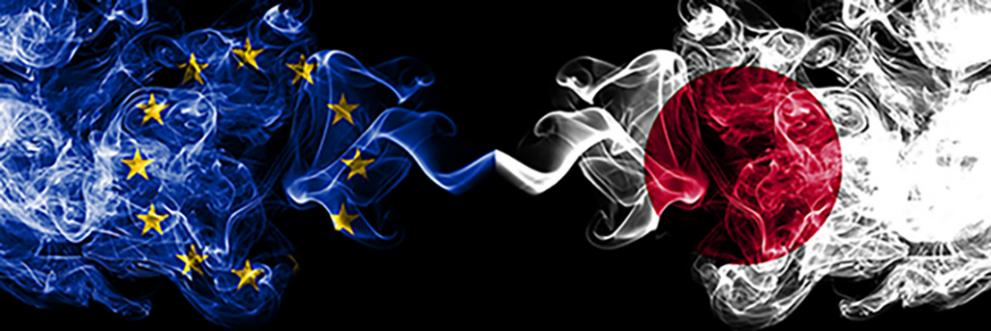
Three joint and research projects (LAURELIN, 4AirCRAFT, and ORACLE) managed by the new European Climate, Infrastructure and Environment Executive Agency (CINEA) will receive €9.5 million from Horizon 2020) and approximately €1.2 million from Japan’s Strategic International Collaborative Research Program (SICORP) under the Japan Science and Technology Agency (JST).
The projects stem from the H2020 Energy call on “Building a low-carbon, climate resilient future: secure, clean and efficient energy” (H2020-LC-SC3-2020-NZE-RES-CC) with a topic targeted on International cooperation with Japan for Research and Innovation on advanced biofuels and alternative renewable fuels (LC-SC3-RES-25-2020) under the 2018-2020 Horizon 2020 Work Programme.
Mariya Gabriel, Commissioner for Innovation, Research, Culture, Education and Youth said:
We need to replace fossil fuels to reach the ambitious goals of the Paris Agreement on climate change. The cooperation between researchers, institutions and industry in the EU and Japan will foster breakthrough innovation in advanced biofuels and alternative renewable fuels and will strengthen the European and Japanese technology base in those areas. We are looking forward to strengthening our cooperation under Horizon Europe.
Patrick Kolar, CINEA Head of Department for Horizon Europe and Innovation Fund underlined:
I am very happy to see cooperation with Japan growing into a strong partnership. European and Japanese academics and industry will develop breakthrough research and innovation on advanced biofuels and alternative fuels. I am fully confident that the results of these projects will guide us in the right direction under Horizon Europe in finding solutions to replace fossil fuels leading towards the climate neutrality we are all aiming for.
The 3 selected projects will start on 1 May 2021 and the topic implementation will be managed by CINEA under the responsibility of DG Research and Innovation with Japan needing to involve at least one Japanese beneficiary.
LAURELIN :The proposal LAURELIN “Selective CO2 conversion to renewable methanol through innovative heterogeneous catalyst systems optimized for advanced hydrogenation technologies (microwave, plasma and magnetic induction)” will focus on the development of disruptive multifunctional catalyst systems and on the optimization and improvement of CO2 hydrogenation process, to obtain methanol as renewable fuel.
Its main objectives are related to the improvement of limiting factors: selectivity, yield, and energy requirements. The strategies adopted will let the convertion of Selective CO2 to renewable methanol through innovative heterogeneous catalyst systems optimized for advanced hydrogenation technologies (microwave, plasma and magnetic induction). These three technologies are suitable to employ intermittent renewable energy supply systems for selective CO2 hydrogenation, which is based on to convert renewable power energy to chemicals.
One of the most remarkable aspects of the LAURELIN project will be the close collaboration with Japanese partners to share and increase knowledge on catalyst systems (mainly about high porous supports as zeolites) focused on hydrogenation processes, as well as to increase impact by fast future industrial and market deployments.
- List of participating countries (6): BELGIUM; GERMANY; JAPAN; SPAIN; UK, THE NETHERLANDS;
- Duration: 48 MONTHS
- Joint grant amount: €4.9 million
4AirCRAFT: The proposal 4AirCRAFT “Air Carbon Recycling for Aviation Fuel Technology” project will establish a game-changer technology for ground-breaking jet fuel synthesis by recycling carbon to meet net-zero targets through “defossilisation”.
Key to the process will be the combination of highly efficient electro-, chemo- and bio- catalysts, which are selectively embedded within novel catalyst carriers, based on engineered hybrid scaffolds in a single cascade reactor, where the introduced CO2 is converted to high-density hydrocarbons.
- List of participating countries (7): BELGIUM; BRAZIL; FINLAND; GERMANY; ITALY; JAPAN;SPAIN; + one Brazilian academic organization
- Duration: 36 MONTHS
- Joint grant amount: €2.6 million
ORACLE: The proposal ORACLE “Novel routes and catalysts for synthesis for ammonia as alternative renewable fuel” will develop scalable alternative reaction technologies for decentralised production of ammonia as a renewable fuel from N2 and H2O. Three strands for ammonia synthesis will be developed and validated at TRL3: electro-catalytic, plasma-aided electrocatalytic as well as electrified thermal catalysis process that will serve as a benchmark.
Production costs 1.4 % of the world's entire energy consumption and it emits approximately 450 million tonnes of carbon dioxide a year - about 1 % of all anthropogenic carbon emissions and more than any other industrial chemical production.
We want to do something about this, and the project will therefore be looking at the advantages of manufacturing climate-neutral, green ammonia from nitrogen and water in scalable reaction technologies for decentralised, local production. We’re taking our outset for the project in three different new technologies, and one of them is an upgrade of the existing Haber-Bosch reactor, says an expert in ammonia technologies, Assistant Professor Emil Drazevic, who is coordinating the project called ORACLE.
- List of participating countries (6) BELGIUM; DENMARK; JAPAN; SLOVENIA; SWITZERLAND; THE NETHERLANDS
- Duration: 36 MONTHS
- Joint grant amount: €3.2 million
Details
- Publication date
- 22 April 2021
